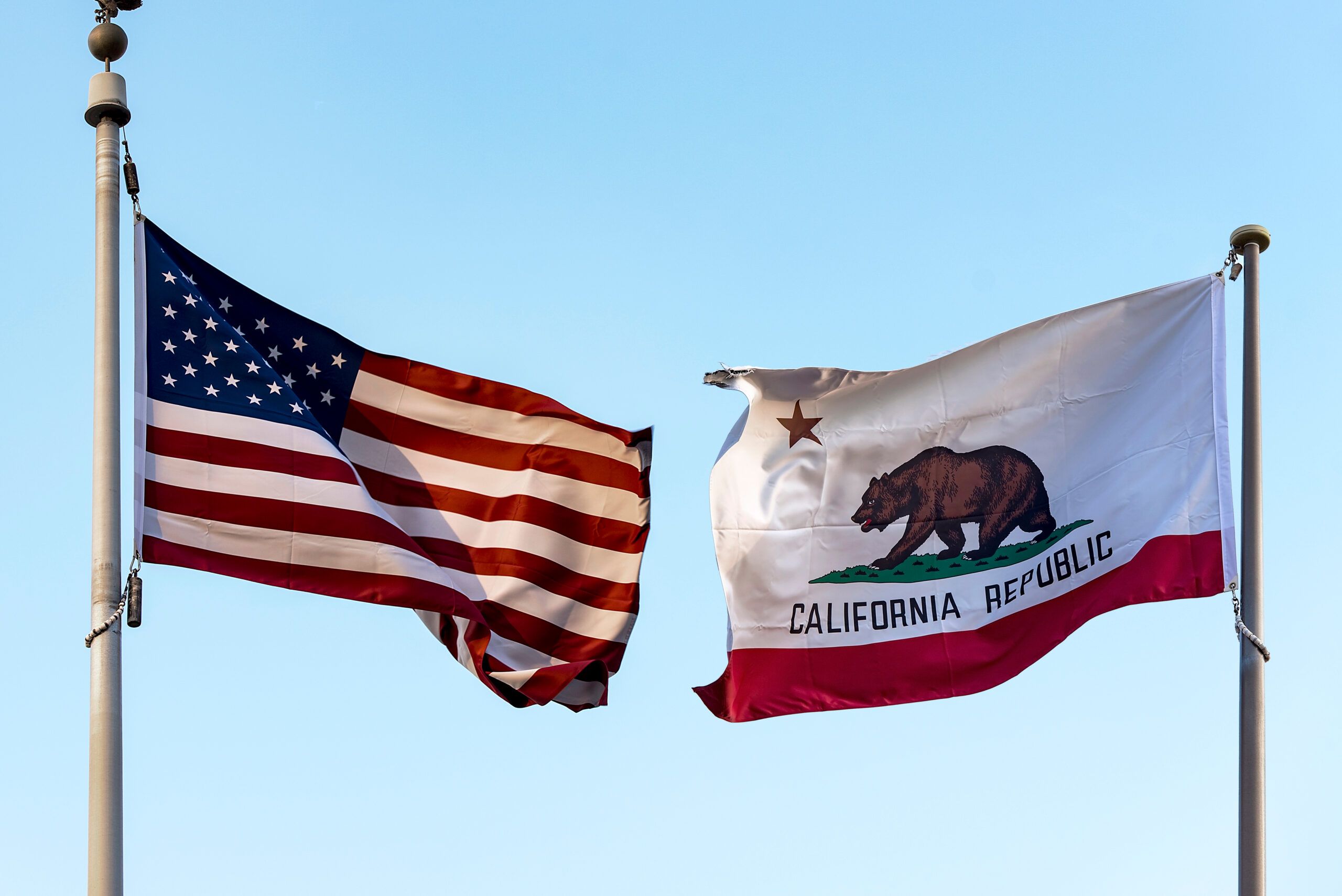We spend a lot of time on government property – even if it isn’t always apparent. From public libraries and school campuses to social services offices and government buildings, a lot of the places we frequent in our day-to-day lives are owned by public entities and agencies. But what happens if you get injured on government property in California? Today, we’re answering that question and more.
Can I Sue the California Government for an Injury on Government Property?
In a word, yes. According to California Government Code 835:
“Except as provided by statute, a public entity is liable for injury caused by a dangerous condition of its property if the plaintiff establishes that the property was in a dangerous condition at the time of the injury, that the injury was proximately caused by the dangerous condition, that the dangerous condition created a reasonably foreseeable risk of the kind of injury which was incurred, and that either:
(a) A negligent or wrongful act or omission of an employee of the public entity within the scope of his employment created the dangerous condition; or
(b) The public entity had actual or constructive notice of the dangerous condition under Section 835.2 a sufficient time prior to the injury to have taken measures to protect against the dangerous condition.
(Added by Stats. 1963, Ch. 1681.)”
Being able to hold a public entity “liable” for injuries means that California citizens can file a personal injury lawsuit when injured on government property. It is worth noting that for a public entity or agency to be liable for injuries resulting from a dangerous condition, they must have had reasonable time to assess the condition (or be notified of it) and take the proper measures to protect visitors.
California Government Code 811.2 further defines what a “public entity” is, stating:
“Public entity” includes the state, the Regents of the University of California, the Trustees of the California State University and the California State University, a county, city, district, public authority, public agency, and any other political subdivision or public corporation in the State.
(Amended by Stats. 2010, Ch. 636, Sec. 1. (SB 1046) Effective January 1, 2011.)”
If you wish to file a personal injury suit against the California government, you must do so within six months of your accident. You must also file a notice making the defendant aware of your intent to file (a personal injury attorney can help with this process).
So, you know that you can sue the California government when injured on the property of a public entity, and you know what constitutes a public entity. Let’s dig a little deeper into the requirements of filing a personal injury suit against the government.

What Is a “Dangerous Condition” in a Personal Injury Suit?
According to GOV. 835, one of the key conditions personal injury plaintiffs (those who wish to file a lawsuit) must meet is proving that a “dangerous condition” caused their injury.
Examples of dangerous conditions include:
- Sidewalks that are uneven or cracked by other obstacles such as tree roots;
- Pot holes in parking lots that a visitor could trip in or get injured driving over;
- Stop signs and other signage that could help visitors stay safe but are obscured by tree trunks, branches, or obstacles;
- Malfunctioning or broken signage or technology that would help protect visitors, such as traffic lights;
- Defective gates that fail to prevent visitors from accessing unsafe conditions;
- Defective barriers that fail to protect guests, such as faulty guardrails, median barriers, etc.;
- Poorly maintained roads or highways, or ones with a drastic drop at the end that could cause an injury;
- And more.
If you suffer an injury on government property, it’s important to document evidence. Take a photo of the condition that caused your accident (if it’s safe to do so). A personal injury attorney can help you understand whether a “dangerous condition” was responsible for your injuries. They can also help gather information for your case.

Can I Sue a Government Employee or Contractor for My Injury?
Citizens can hold government employees and contractors liable if:
- The individual in question injured the plaintiff while acting within the scope of their assignment or agreed-upon duties; or
- The individual was carrying out a government function for which it had authority.
Even if a government employee or contractor injures you, the defendant in your personal injury suit will probably be the agency or entity employing them, not the party themselves.
How Do I File a Personal Injury Lawsuit Against the California Government?
To file a lawsuit against the California state government, you must first give the agency or entity responsible for your injury a “notice of claim.” You have six months from the date of your injury to file a notice of claim with the agency or entity you intend to gain damages from or sue. A personal injury attorney can help you file the notice.
Filing a notice essentially secures your right to sue the entity or agency in question, however, it does not bind you to do so. You won’t face any penalties for choosing not to file a lawsuit after filing a notice. As a result, filing a notice is generally a good idea if you believe you may want to file a personal injury suit.
Notices must include the following information:
- The name and postal address of the claimant (the person who intends to sue), as well as the address they wish to receive information at;
- The date, place, and circumstances that led to the injury the claimant intends to sue for;
- A description of how the injury has impacted the claimaint, such as the costs of medical expenses, damages, etc.;
- The names of any employees or contractors involved incident, if known;
- The amount the claimant wishes to receive in damages for the injury if less than $10,000 (claims over $10,000 must be processed as either a limited case [up to $25,000] or an unlimited case [over 25,000]).
After you file your claim, the agency or entity in question will respond within 45 days. Sometimes, an entity or agency will approve a claim, providing the claimant with damages.
In other instances, the defendant may deny a claim. When this happens, the claimant can file a personal injury lawsuit against the agency or entity in a state court if they still wish to pursue compensation. To do so, claimants must file a petition with the Superior Court. If the court grants the petition, they must sue within 30 days.

What Compensation Can I Receive By Suing the Government?
If you win your personal injury suit, you could obtain compensation for:
- Lost income;
- Medical expenses;
- Pain and suffering;
- Property damage;
- And more.
How much you receive depends on how at-fault the defendant is for your injuries. For example, let’s compare two scenarios:
- Plaintiff A had earbuds in and slipped and fell in a large puddle on government property. An employee tried to shout and warn them of the puddle verbally, but the plaintiff couldn’t hear due to their earbuds.
- Plaintiff B just finished legally street-parking their car, when a city garbage truck backed into it. The plaintiff suffered injuries and property damages as a result.
If plaintiff A can prove that the agency or entity in question knew of the spill and had time to post signage warning visitors of it but failed to do so, they may receive some compensation. However, because their own negligence – being unaware of their surroundings – played a role in their injury, they could receive less compensation than if the agency or public entity was entirely at fault.
However, plaintiff B would probably receive a larger payout, since their negligence played no role in the accident
Personal Injury Attorneys Fighting for Your Rights
At Wilshire Law Firm, we know the idea of filing a lawsuit against a government agency or entity can be daunting. We’re here to make the process easier, ensuring that you receive the counsel and compassion you deserve throughout your case. Our contingency-fee pricing model means you pay NO FEES unless WE WIN your case.
To schedule a consultation with our team, contact us online or via phone at (800) 501-3011.










